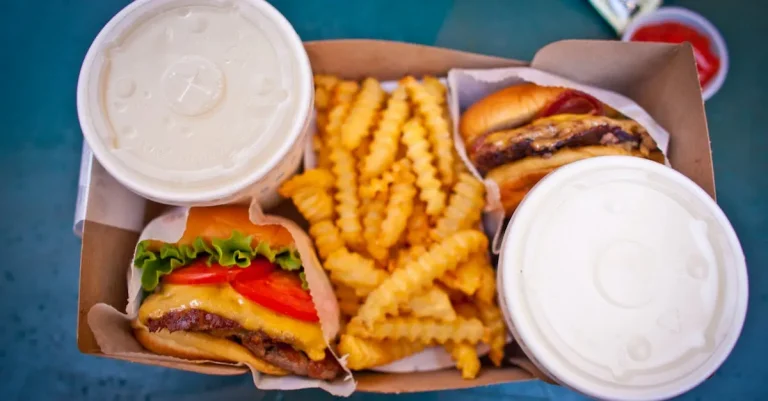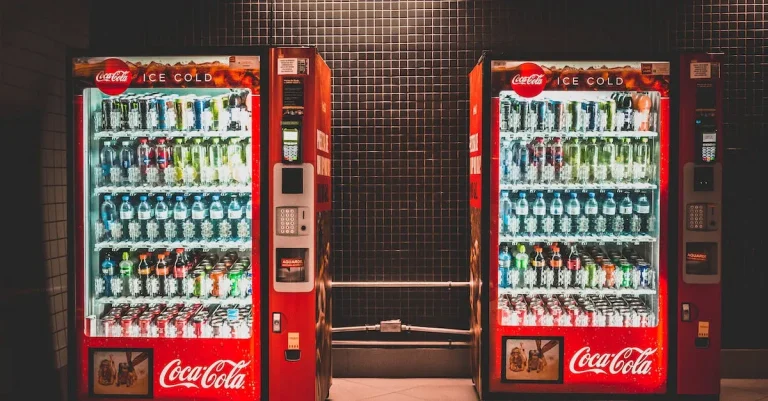Can You Buy Prenatal Vitamins With Ebt?
Eating nutritious foods and taking vitamins are essential during pregnancy. If you rely on SNAP EBT benefits for groceries, you may be wondering if you can use your EBT card to purchase prenatal vitamins to support a healthy pregnancy. Navigating what is and isn’t covered by SNAP can be confusing.
If you’re short on time, here’s a quick answer: No, prenatal vitamins are not eligible for purchase with SNAP EBT benefits. However, you may be able to get prenatal vitamins at no cost through government assistance programs.
In this comprehensive guide, we’ll explore whether or not prenatal vitamins can be purchased with EBT benefits.
SNAP Benefits Can Only Buy Food
The Supplemental Nutrition Assistance Program (SNAP), also known as food stamps, provides eligible low-income individuals and families with funds to purchase food.
However, it’s important to note that SNAP benefits can only be used to buy certain items, specifically those that are considered nutritional food and beverages.
SNAP EBT is for nutritional food and beverages
SNAP benefits are accessed through an Electronic Benefit Transfer (EBT) card, which functions similarly to a debit card.
This card can only be used to purchase food items that are intended for human consumption. This includes fresh fruits and vegetables, dairy products, meat, poultry, fish, bread, cereals, and other staple food items.
It’s worth mentioning that the United States Department of Agriculture (USDA), which administers the SNAP program, has provided specific guidelines on what can be purchased with SNAP benefits. The focus is on promoting a healthy and balanced diet for recipients.
Vitamins, medicines, and supplements are ineligible
Unfortunately, prenatal vitamins, as well as other vitamins, medicines, and supplements, are not eligible for purchase with SNAP benefits. While these items can contribute to a person’s overall health, they are not considered food and are therefore excluded from the program.
This restriction is in place to ensure that SNAP benefits are used solely for obtaining essential nutrition and cannot be used to purchase non-food items.
Other ineligible items include pet food, toiletries, household supplies
In addition to vitamins, medicines, and supplements, there are other items that cannot be purchased with SNAP benefits. These include pet food, toiletries, household supplies, and any other non-food items.
The purpose of the SNAP program is to assist individuals and families in obtaining nutritious food to meet their dietary needs. While it can be tempting to use SNAP benefits for other items, it’s important to remember that the program is specifically designed for food assistance.
If you are in need of prenatal vitamins or other non-food items, there are alternative options available. Many local health clinics, community organizations, and non-profit agencies offer assistance programs that can help provide these essential items.
For more information on the SNAP program and eligible food items, you can visit the official USDA website.
Using EBT Cash for Prenatal Vitamin Purchases
For individuals who rely on the Supplemental Nutrition Assistance Program (SNAP) and have an Electronic Benefits Transfer (EBT) card, it is important to understand the guidelines for using EBT cash for prenatal vitamin purchases.
Some states provide cash benefits on EBT cards
While EBT cards are primarily used to purchase food items, some states provide cash benefits on EBT cards as part of their assistance programs. These cash benefits can be used to purchase a variety of items, including prenatal vitamins.
It is important to note that the availability of cash benefits on EBT cards varies by state. Some states provide cash benefits for specific categories, such as households with children or individuals with disabilities.
It is recommended to contact your local SNAP office or visit their website for specific information regarding cash benefits on EBT cards in your state.
Cash benefits can be used to purchase anything the store sells
When using EBT cash benefits, individuals have the flexibility to purchase a wide range of items, including prenatal vitamins, as long as the store accepts EBT as a form of payment. This allows individuals to prioritize their health and well-being by purchasing essential prenatal supplements.
It is important to keep in mind that EBT cash benefits cannot be used to purchase non-essential items, such as alcohol or tobacco products. The funds are intended to assist individuals and families in meeting their basic needs, including nutritional supplements like prenatal vitamins.
But many retailers don’t accept EBT cash
While EBT cash benefits can be used for prenatal vitamin purchases, it is worth noting that many retailers do not accept EBT as a form of payment for non-food items. Therefore, it may be necessary to explore alternative options for purchasing prenatal vitamins.
One option is to visit local pharmacies or health stores that accept EBT as a form of payment. These establishments often carry a variety of prenatal vitamins and other essential supplements.
Additionally, some online retailers may accept EBT as a payment method, providing a convenient option for purchasing prenatal vitamins from the comfort of your own home.
It is always a good idea to check with individual stores or websites to confirm their EBT acceptance policy before making a purchase.
Getting Free Prenatal Vitamins
Medicaid, WIC, and state programs provide prenatal vitamins
If you are pregnant and on a limited income, you may be eligible for assistance programs such as Medicaid, Women, Infants, and Children (WIC), or state-specific programs. These programs often provide free prenatal vitamins to ensure that expectant mothers receive the necessary nutrients for a healthy pregnancy.
Prenatal vitamins are essential for the development of the baby and can help prevent certain birth defects. To find out if you qualify for these programs, visit your local Department of Health and Human Services or check their website for more information.
Non-profit organizations and health clinics assist with costs
Non-profit organizations and health clinics are dedicated to supporting pregnant women and ensuring they have access to essential prenatal care. Many of these organizations provide free or low-cost prenatal vitamins to those in need.
By reaching out to local non-profit organizations or community health clinics, you may be able to obtain prenatal vitamins at little to no cost. These organizations understand the importance of prenatal care and are committed to helping expectant mothers have a healthy pregnancy.
Doctor samples may be available
When visiting your doctor for prenatal check-ups, don’t hesitate to ask if they have any samples of prenatal vitamins. Doctors often receive samples from pharmaceutical companies and may be able to provide them to patients who may have difficulty affording prenatal vitamins.
While not a guaranteed option, it’s always worth asking as it can save you some money. Additionally, your doctor may be aware of other resources or programs that can help you obtain free or low-cost prenatal vitamins.
Eating Nutritious Foods with SNAP Benefits
SNAP, also known as the Supplemental Nutrition Assistance Program, is a federal assistance program that helps low-income individuals and families purchase food. While it provides support for buying groceries, there are certain restrictions on what can be purchased with SNAP benefits.
Prenatal vitamins, unfortunately, are not eligible for purchase using EBT (Electronic Benefit Transfer) cards.
However, this doesn’t mean that individuals cannot maintain a healthy diet while using SNAP benefits. The program encourages recipients to focus on purchasing nutritious foods such as fruits, vegetables, and proteins.
Focus diet on SNAP-eligible fruits, vegetables, proteins
By incorporating a variety of fruits and vegetables into their diet, individuals can ensure they are receiving essential vitamins and minerals. These items are typically eligible for purchase with SNAP benefits and provide essential nutrients that support overall health.
Lean proteins, such as chicken, fish, and beans, are also great choices for SNAP recipients looking to maintain a balanced diet.
Take advantage of nutrition programs like WIC
In addition to SNAP benefits, individuals who are pregnant or have young children may also be eligible for the Special Supplemental Nutrition Program for Women, Infants, and Children (WIC). WIC provides eligible individuals with access to nutritious foods, nutrition education, and support services.
WIC offers a wide range of benefits, including checks that can be used to purchase specific foods like fruits, vegetables, whole grains, and dairy products. This program is a valuable resource for pregnant women and families with young children to ensure they have access to the necessary nutrients during critical developmental stages.
Learn how to shop and cook healthy on a budget
Shopping for and cooking healthy meals on a budget can be challenging, but it is possible with some planning and creativity. There are numerous resources available to help individuals make nutritious choices while stretching their SNAP benefits.
Government websites like MyPlate provide information on healthy eating guidelines and recipes that are affordable and easy to prepare. Local community organizations and food banks may also offer cooking classes or workshops focused on budget-friendly, nutritious meals.
It’s important to remember that maintaining a healthy diet is not limited to expensive or specialized foods. With a little research and creativity, individuals can make the most of their SNAP benefits and ensure they are providing their bodies with the necessary nutrients for optimal health.
Ask Your Doctor for Guidance
When it comes to affording prenatal vitamins, it’s important to discuss your concerns with your doctor. They can provide valuable guidance and assistance in finding the best options for you and your baby’s health.
Prenatal vitamins are an essential part of a healthy pregnancy, as they provide key nutrients that support fetal development and overall well-being.
Discuss concerns over affording prenatal vitamins
If you’re worried about the cost of prenatal vitamins, don’t hesitate to bring it up with your doctor. They can help you explore different options and provide recommendations based on your specific situation.
Your doctor may be able to suggest affordable brands or alternative sources of key nutrients that can be obtained through your diet.
Get guidance on dietary sources of key nutrients
Prenatal vitamins are designed to supplement your diet and ensure you’re getting all the necessary nutrients during pregnancy. However, it’s always a good idea to discuss dietary sources of key nutrients with your doctor.
They can provide guidance on foods that are rich in these nutrients, such as leafy greens, citrus fruits, legumes, and fortified cereals. Incorporating these foods into your diet can help supplement your prenatal vitamin intake.
Remember, your doctor is there to support you throughout your pregnancy journey. Don’t hesitate to ask questions and seek their guidance when it comes to affording prenatal vitamins or ensuring you’re getting the necessary nutrients for a healthy pregnancy.
Conclusion
While prenatal vitamins themselves cannot be purchased with SNAP EBT food benefits, pregnant women can still take steps to get the vitamins they need, either for free or at reduced cost.
Combining healthy EBT food choices, assistance programs, and discussions with your doctor can help ensure you get key pregnancy nutrients without breaking the bank.










